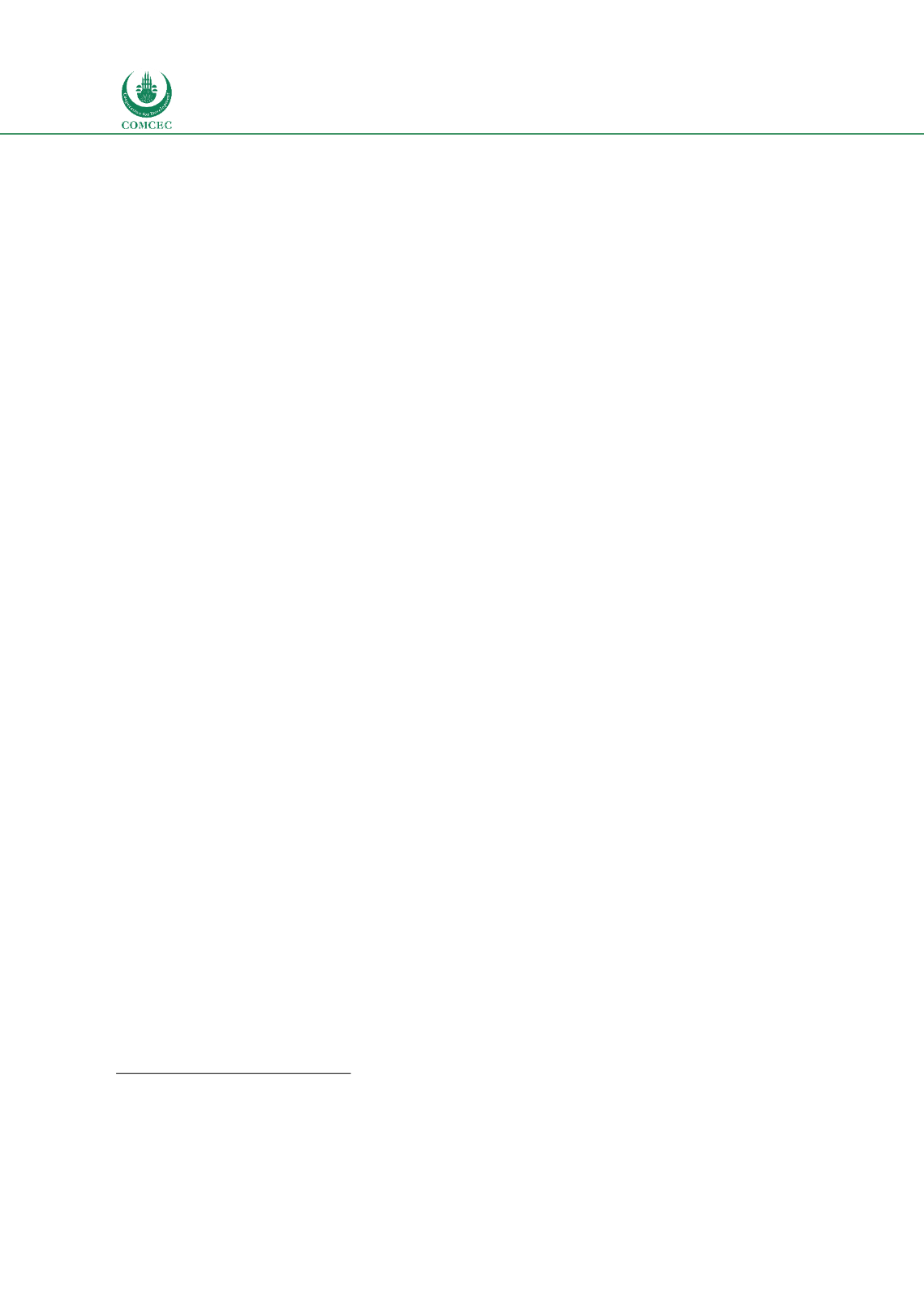

Enhancing Public Availability of Customs Information
In the Islamic Countries
86
Nonetheless, stakeholders stated that provision 1.1.1 (h) has already been implemented, while
obligations under provision 1.1.1(c) are also mostly implemented by now. The gap between
legal and de facto compliance is therefore present, but in favor of increased rather than
decreased compliance in this case.
The Bangladesh government used to publish all trade related Acts, Rules, Regulation and
information including basic steps of importation, exportation and transit procedures, applied
rates of duties and taxes, and appeal procedures in printed form. However, the country has made
remarkable progress in making this information easily accessible to the public through the
internet in recent years. The Bangladesh Trade Portal and the newly launched Bangladesh
Customs Portal provide one-stop online access to most trade related information. They provide
trade related legislation, basic export and import steps, documentary requirements, applicable
duties, taxes, tariff, incentives, advance ruling and appeal procedures as well as required forms
and documents. Bangladesh Commerce Ministry webpage also provides detailed information
about bilateral, regional and multinational trade agreements where the country is a party.
The draft Customs Act
23
also incorporates
Customs information dissemination in Section 281.
It requires the Government to publish all rules, regulations and procedures enacted under the
Customs Act. It also requires the authorities to publish all rules and regulations 30 days prior to
their enactment, except in case of emergency. It will also make it mandatory for the Government
to publish all rules, regulations, policies, orders, circulars, forms, decisions, explanations, and
other information online to the extent possible without any delay.
Additionally, Bangladesh enacted the Right to Information Act in 2009, which requires all public,
autonomous, and statutory organizations to make necessary provisions for ensuring the free
flow of information and protecting the public’s right to information for increased transparency
and accountability. To implement the provisions of this Act, the Internal Resource Division (IRD)
of the Ministry of Finance prepared the “Information Publication Policy 2015”, which is also the
guiding policy for publication of information for the National Board of Revenue (NBR), which
administers all Customs issues on behalf of the Bangladesh Customs. Article 6 of the Right to
Information Act 2009 requires every authority to publish an annual report listing all laws, acts,
ordinances, rules, regulations, policies, notifications, directives, manuals, etc., and all
information pertaining to any decision taken, proceedings or activity executed or proposed by
indexing them in such a manner as to be easily accessible to the public. In general, these lists of
applicable legal acts and rules appear on the websites of Customs and other border authorities.
These authorities also publish the texts of laws, acts, ordinances, rules, regulations, and policies,
both in printed form and on their respective websites.
Publication of Trade-Related Rules and Procedures
According to NBR, all trade related rules, regulations, and procedures are published both in
printed form as well as online. However, some stakeholders indicated that trade related
information was published mainly in the form of legal texts that have to be found in the official
gazette, in printed copies of laws, and on various government websites; there was no single
source for all requirements. Nonetheless, private sector stakeholders agreed that in recent years
23
The draft of new Customs Act has been finalized taking into consideration stakeholders’ comments and
suggestions, as well as incorporating international best practices, and now waiting to be placed before the
National Parliament for its enactment.
















